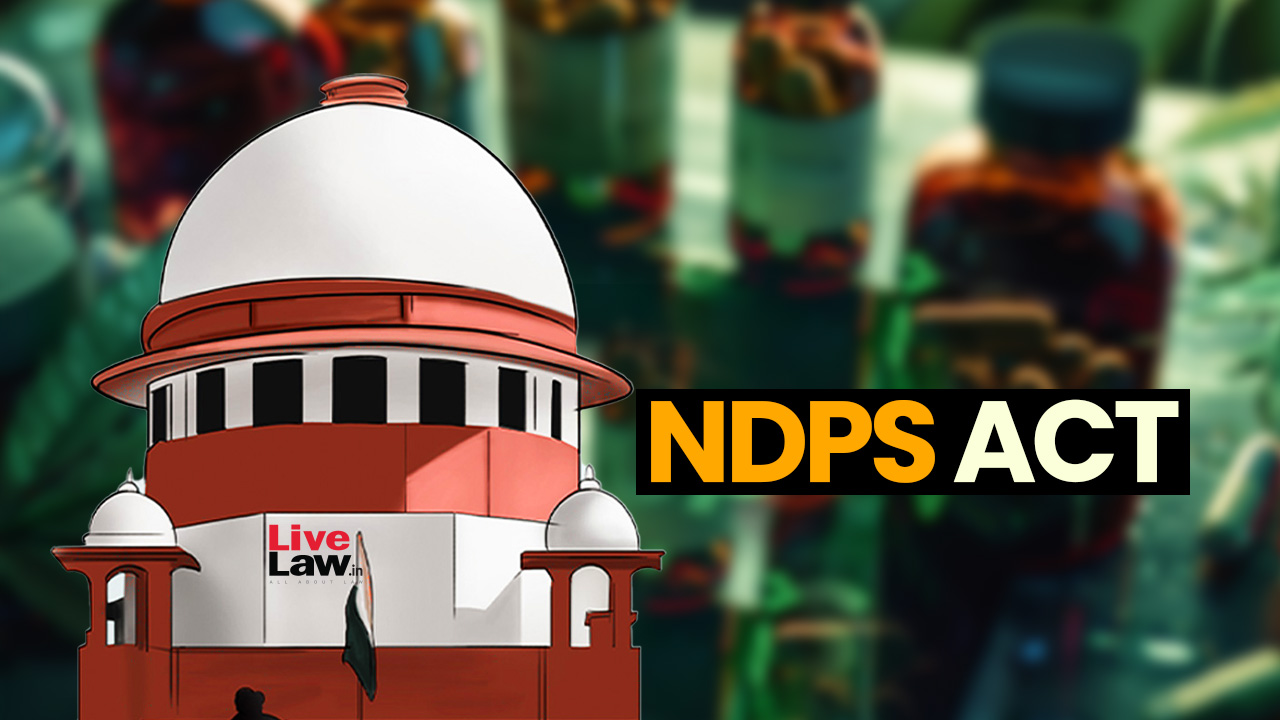 |
|
The Supreme Court of India has recently issued a landmark ruling concerning the seizure of vehicles under the Narcotic Drugs and Psychotropic Substances Act, 1985 (NDPS Act). The case, Bishwajeet Dey versus the State of Assam, addresses a critical aspect of the law: the circumstances under which a vehicle used in the transportation of narcotics can be confiscated. The court's decision significantly clarifies the rights of vehicle owners and introduces crucial procedural safeguards against unwarranted confiscation. The core principle established is that mere association of a vehicle with a drug-related crime does not automatically lead to its forfeiture. Instead, the court emphasized the importance of establishing a direct link between the owner's knowledge or connivance and the illegal activity. This nuanced approach protects innocent vehicle owners who may have unwittingly had their vehicles used in criminal activities. The ruling provides much-needed clarity in a previously ambiguous area of law, potentially preventing numerous instances of unjust confiscation.
The judgment centers around the principle of due process and fairness. The court explicitly stated that a vehicle seized under the NDPS Act is not automatically liable for confiscation. The burden of proof lies with the prosecution to demonstrate a clear connection between the owner and the illegal use of the vehicle. The owner, on the other hand, has the right to prove that their vehicle was used without their knowledge or consent, and that they took all reasonable steps to prevent its misuse. This could include evidence such as leasing agreements, security measures, or witness testimonies. The court's emphasis on the owner's reasonable precautions highlights the importance of individual responsibility and the need to protect innocent parties from the consequences of criminal actions perpetrated by others. The decision also underscores the importance of robust investigative procedures to ascertain the actual facts surrounding the vehicle’s use in the drug operation before initiating forfeiture proceedings.
Furthermore, the Supreme Court addressed the timing of vehicle confiscation. The court ruled that confiscation of the seized vehicle can only occur after the conclusion of the criminal trial. This means that the decision to confiscate a vehicle cannot be made until after the accused has been convicted, acquitted, or discharged. This procedural safeguard ensures that the owner receives due process and an opportunity to present their case before any final order of confiscation is issued. The court further emphasized that even if the trial court determines that the vehicle is liable for confiscation, it must provide a fair hearing to any person claiming a right to the vehicle before making a final decision. This requirement reflects a commitment to upholding fundamental principles of justice and avoiding arbitrary actions against vehicle owners. The judgement sets a precedent for ensuring a fair trial for both the accused and those whose property has been seized, avoiding the misuse of powers under the NDPS act.
The implications of this Supreme Court ruling are far-reaching. It provides a much-needed safeguard against the potential for abuse in the application of the NDPS Act. By clearly defining the conditions under which vehicle confiscation is permissible and mandating due process throughout the legal proceedings, the court has strengthened the rule of law. This decision is likely to have a significant impact on future cases involving vehicle seizures under the NDPS Act, leading to more equitable and just outcomes. The ruling reinforces the importance of procedural fairness and the protection of individual rights within the framework of criminal justice, providing a critical interpretation of the NDPS Act's provisions and emphasizing the need for evidence-based decision-making in cases involving vehicle confiscation.
The background to the case involved an appeal against a Gauhati High Court decision. The High Court had upheld a trial court’s decision to refuse the interim release of a seized truck. The Supreme Court, however, overturned this decision, clarifying that the NDPS Act does not prohibit the interim release of vehicles seized for allegedly transporting contraband. The court highlighted that such releases could be permitted under sections 451 and 457 of the Criminal Procedure Code (CrPC). This aspect of the ruling further emphasizes the balance the court is striving to achieve: protecting the interests of justice while safeguarding the rights of individuals potentially impacted by the application of the NDPS Act. The decision ensures that the judicial process fairly considers all parties involved, highlighting the complexities of balancing criminal investigation with the protection of individual rights.
In conclusion, the Supreme Court’s ruling in Bishwajeet Dey versus the State of Assam offers significant clarification on the application of the NDPS Act regarding vehicle seizure. By emphasizing the requirement of owner knowledge or connivance, introducing a post-trial confiscation process, and clarifying the possibility of interim release under certain circumstances, the court has set a vital precedent for fair and equitable application of the law. This decision not only protects innocent vehicle owners from unjust confiscation but also underscores the fundamental principles of due process and fairness within the Indian legal system. The judgment serves as a reminder of the importance of balancing the need to curb illegal drug trafficking with the protection of individual rights and ensures a more just and equitable application of the NDPS Act.
